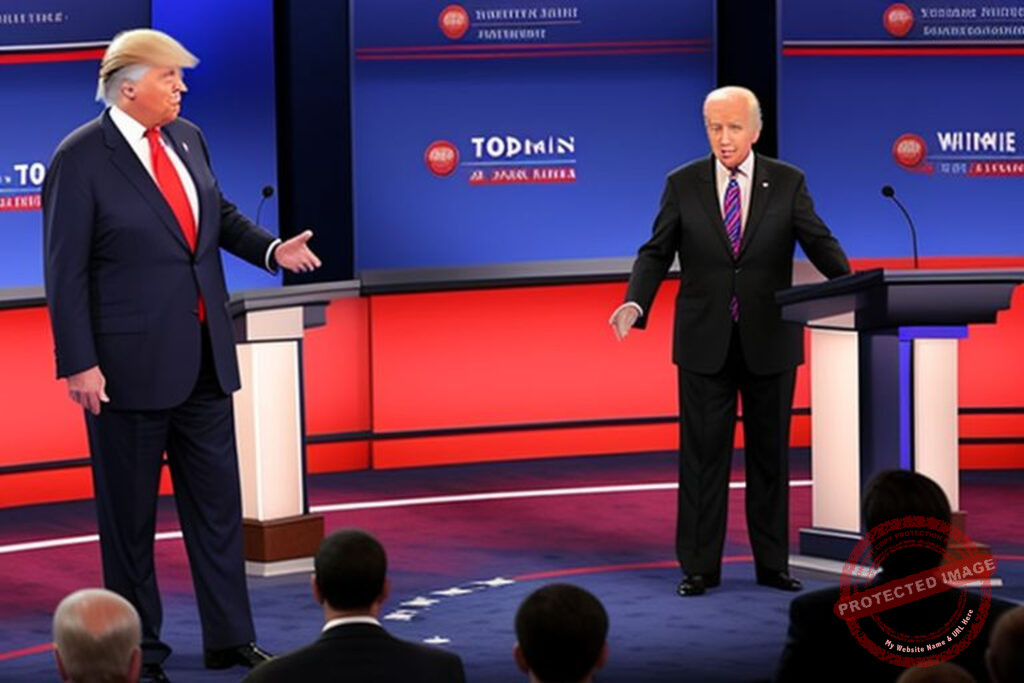
Presidential debates are a cornerstone of American democracy, offering citizens a unique opportunity to evaluate the candidates vying for the highest office in the land. These debates are not just mere formalities; they are pivotal moments in the election process that provide insight into each candidate’s policies, character, and ability to lead. Understanding the history and significance of presidential debates underscores their critical role in helping voters make informed decisions.
A Brief History of Presidential Debates
The history of American presidential debates is a testament to their evolving significance in the democratic process. The first ever presidential debate occurred in 1960 between John F. Kennedy and Richard Nixon. This televised event marked a turning point in political communication, highlighting the power of television as a medium to reach and influence the electorate. Kennedy’s poised and charismatic performance contrasted with Nixon’s tired and less telegenic appearance, demonstrating the impact of image and presentation on public perception.
For years following, presidential debates became less frequent until their resurgence in 1976. Since then, they have been a staple of every presidential election cycle, evolving with advancements in media and technology. Today, debates are carefully staged, with rules agreed upon by both parties to ensure a fair and substantive exchange of ideas.
The Importance of Presidential Debates
In-Depth Policy Examination
Presidential debates offer a platform for candidates to present their policies directly to the public. Unlike campaign ads or stump speeches, debates allow for extended discussion on critical issues such as healthcare, the economy, foreign policy, and climate change. This in-depth examination helps voters understand the nuances of each candidate’s proposals and their potential impact on the nation.
Real-Time Responses and Accountability
Debates put candidates on the spot, requiring them to think on their feet and respond to their opponents’ criticisms and questions from moderators. This real-time interaction reveals how candidates handle pressure, their depth of knowledge, and their ability to articulate their positions clearly. It also holds them accountable, as they must justify their past actions and statements.
Character and Leadership Assessment
Beyond policies, debates provide a window into a candidate’s character and leadership qualities. Voters can assess traits such as composure, empathy, integrity, and the ability to inspire and unite. These intangible qualities are often crucial in determining a candidate’s suitability for the presidency, as they influence how they might handle crises and represent the nation on the global stage.
Engagement and Education
Debates engage the electorate, drawing attention to the election and encouraging voter participation. They serve an educational purpose, informing citizens about the candidates’ stances and the broader issues at stake. This informed electorate is better equipped to make decisions that reflect their values and priorities.
The Relevance of Debates in Modern Elections
In today’s fast-paced media environment, the relevance of presidential debates remains undiminished. Despite the proliferation of social media and 24-hour news cycles, debates are one of the few occasions where candidates share a stage and engage directly with each other and the electorate. They offer a counterbalance to the often fragmented and polarized nature of contemporary political discourse, providing a comprehensive view of the candidates.
Highlighting Contrasts
Debates highlight the contrasts between candidates in a clear and direct manner. This helps voters see not just policy differences but also differing approaches to governance, communication styles, and problem-solving abilities.
Cutting Through the Noise
In an age where misinformation and superficial soundbites can dominate, debates cut through the noise, presenting unfiltered views of the candidates. This transparency is essential for a healthy democracy, as it allows voters to base their decisions on substantive information rather than propaganda or spin.
Encouraging Civic Engagement
Debates stimulate public interest and discussion about the election, encouraging civic engagement and voter turnout. They remind citizens of their crucial role in the democratic process and the importance of making an informed choice.
Presidential Debates – Conclusion
American presidential debates are more than just political theatre; they are a vital democratic institution. From their historic beginnings to their modern-day iterations, debates provide an essential forum for candidates to present their visions and for voters to make informed decisions. As we look to the future, the enduring importance of these debates in shaping the course of American democracy cannot be overstated. They embody the principles of transparency, accountability, and civic engagement that are the bedrock of a vibrant and functioning democracy.
About Raleigh Acupuncture
Our patients have a wide variety of political views. They are a microcosm of the larger population. As Americans, we take our politics seriously. But we have to remember that America was founded on the principles of tolerance, liberty, justice, virtue, and civic engagement. We must commit to working together for the greater good, respecting each other, and tolerating our differences. The coming year will challenge us to dig deep in this regard and we must rise to the occasion. And no matter what the outcome in November, let’s remember that we’re all Americans and our country is stronger than any one politician or political party.
BOOK NOW to schedule an acupuncture appointment online.
Meet the Practitioners (Video).
Learn about all the conditions we treat.
Focus Key Phrase: Presidential Debates
Image generated with https://perchance.org/ai-text-to-image-generator.




